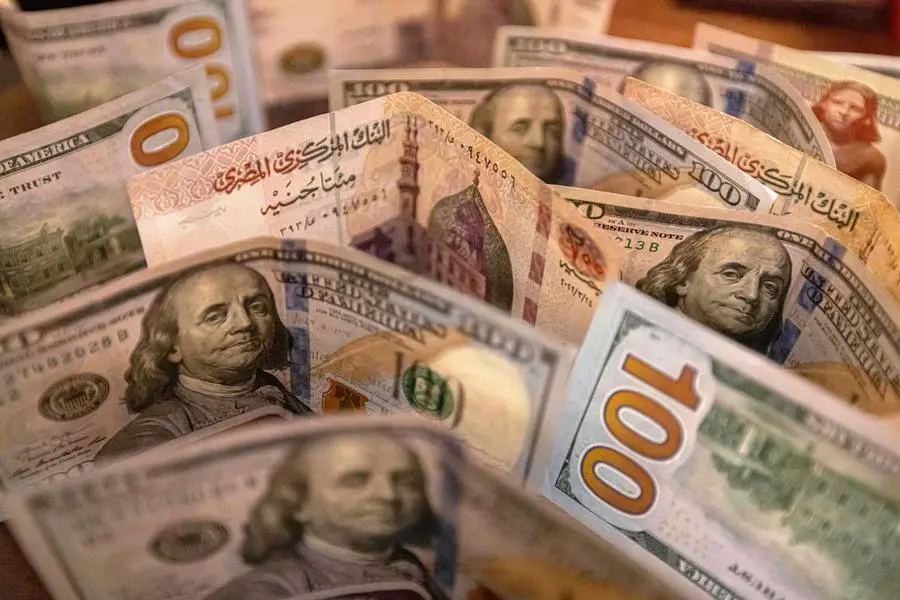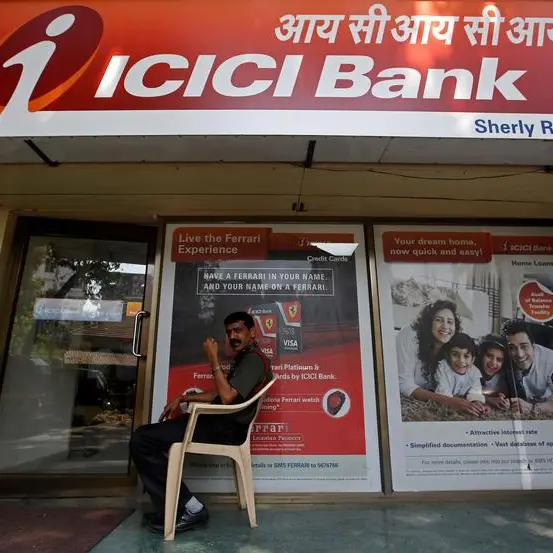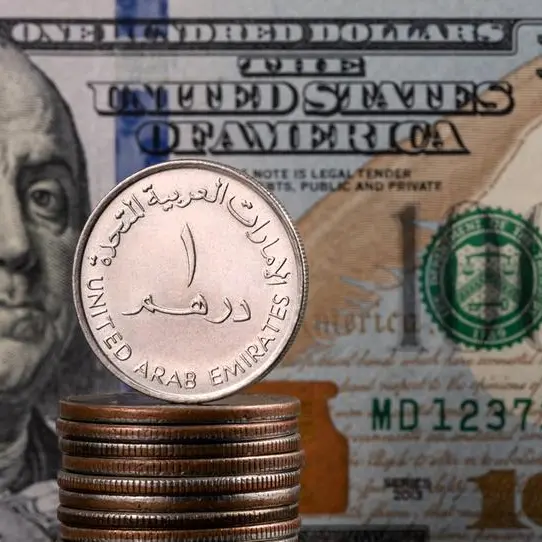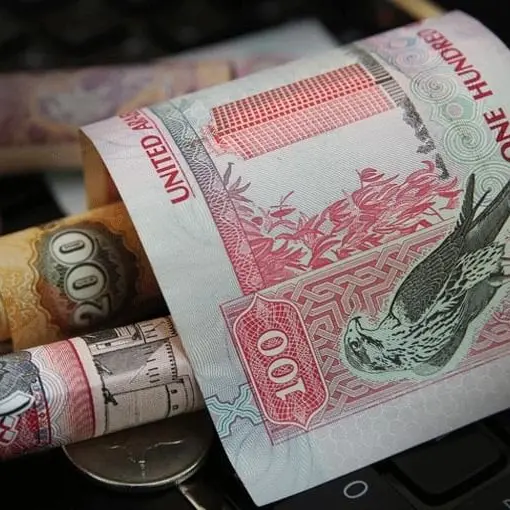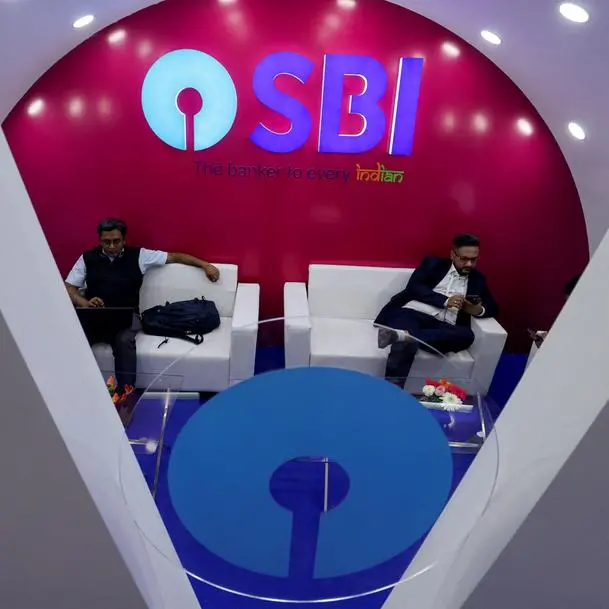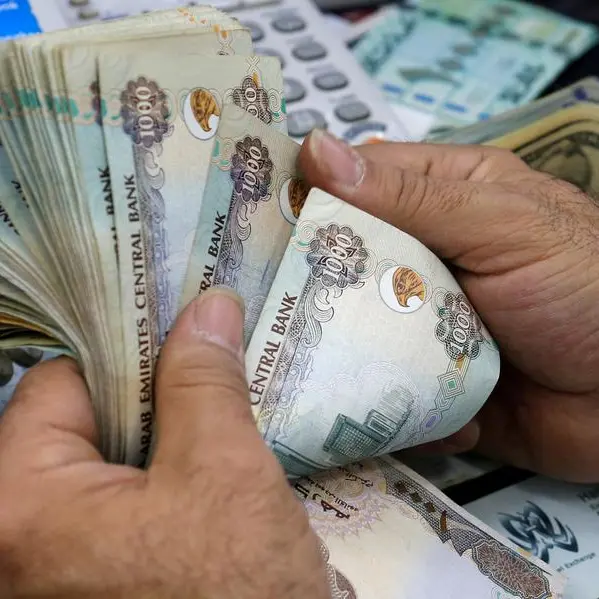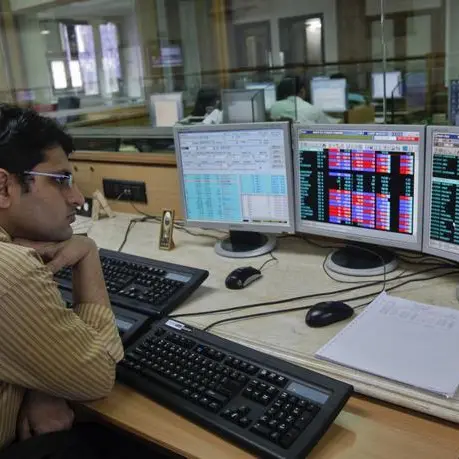PHOTO
Egypt's sovereign dollar bonds soared on Friday, buoyed by expectations that it would announce a major investment project with the backing of Gulf ally the United Arab Emirates that could help boost foreign currency flows to the indebted nation.
Longer-dated bonds enjoyed the biggest gains, with those maturing in 2047 or beyond up more than 2 cents in the dollar to trade at 65.5-67.5 cents - for most their highest level in around a year, Tradeweb data showed.
Egypt's cabinet did not provide details on Thursday about the project, but on Friday, in the room in Egypt's new capital where a news conference was launched to cover the investment, a sign said: "Egypt and the Emirates, Partnership for Development: Ras al-Hikma."
Earlier in February, Hossam Heiba, the head of Egypt's state General Authority for Investments, said Egypt had chosen an investment group from the UAE from among several bids to implement a project at Ras al-Hikma, 200 km (124 miles) west of Alexandria in an area of upscale tourist resorts.
Investments in the project could eventually exceed $22 billion and include participation from Egypt's government and private sector, Heiba said in an interview on CNBC Arabia.
Egypt has been mired in a slow-burning economic crisis that includes a chronic shortfall of foreign currency which has led to sustained pressure on the Egyptian pound, on government spending, and on local businesses.
Inflation accelerated to record levels last summer, the debt burden has been rising, and the shortage of foreign currency risks deepening because of lost revenues from the Suez Canal following attacks on shipping in the Red Sea by Yemen's Houthi movement.
A $3 billion financial support package from the International Monetary Fund (IMF) signed in December 2022 faltered after Egypt paused on a pledge to move to a flexible exchange rate regime and progress on state asset sales proved slow.
Talks with Egypt to boost its IMF loan program are making excellent progress, the IMF said on Thursday, adding that the country needed a "very comprehensive support package" to deal with economic challenges, including pressures from the war in Gaza.
Since President Abdel Fattah al-Sisi took power in 2013, Egypt has received tens of billions of dollars in bailouts from wealthy Gulf states.
But this avenue has largely dried up in the past two years as Gulf nations choose to link support to reforms and seek profitable investments in some of Egypt's most prized assets.
The economic crisis has increased pressure on Egypt's leadership to act and to scale back on massive infrastructure projects that have been a hallmark of Sisi's rule, including a new capital.
However, Sisi has continued to insist that large scale mega-projects will bring in billions in foreign investment and create thousands of jobs.
(Reporting by Patrick Werr and Karin Strohecker Writing by Aidan Lewis Editing by Edmund Blair and Gareth Jones)
